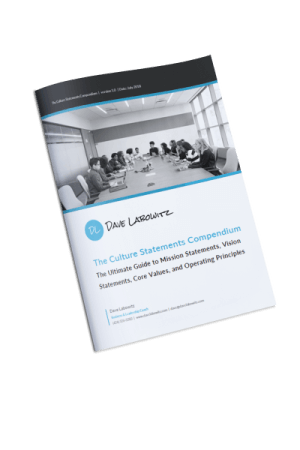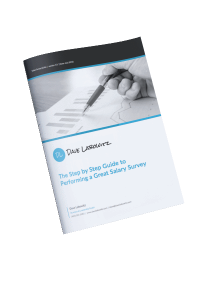First of all, if you’re feeling disengaged at work, don’t worry. It happens to everybody at some point. “But Dave, what if it’s my company? Is there something wrong with me? I started it, I built it, and it’s now my family’s sole source of income. And somehow, I can barely drag myself to the office. I just don’t care that much anymore.” Believe it or not, this is common! And as a coach, I get these kinds of questions a lot. The good news is, it’s normally a fixable issue. And if you can’t fix it, you’re probably better off moving on in some fashion, anyway.
What to understand about disengagement at work
I hear a lot of reasons from entrepreneurs and top executives who feel disengaged at work. The thing is, most of the time, they’re not necessarily aware of why they’re feeling disengaged when they call. There are normally a lot of contributing factors, which can make it challenging to figure out. See if any of these resonate:
- I’m tired of doing the same things every day.
- The company is successful enough. I don’t feel motivated.
- I’m not really accountable to anyone but myself.
- I have to do everything… and I don’t like doing a lot of it.
- I’m not sure what to do next and I’m tired of uncertainty.
- The market I’m in is boring.
- I feel like I’m on a journey that will never end. Will I ever be free?
- I think I have ADHD or something. I can’t concentrate. Ever.
- Maybe I’m burned out.
Is there an opportunity for self-forgiveness?
Before we dive into all the strategies and tactics to help you get reengaged, push pause a moment. Let’s take a quick detour down the woo-woo path. How have you been relating to yourself? I’m sure you’re frustrated, and maybe a little scared. It’s easy to end up in a place of self-judgment if you have those kinds of feelings long enough. If your business performance has been slipping, too, it can make it even easier to hate on yourself a bit.
If you want to move through your disengagement, your first challenge will be to release the self-judgments that are holding you down. You don’t need years of therapy to do this kind of work. First, acknowledge what you’re feeling. It’s easy to hide from unpleasant feelings but choose not to. Don’t run from them: they’re your feelings, so actually feel them. Once you’re connected to your truth, realize that it’s okay to feel however you’re feeling. You’re not doing life wrong. You’re not doing business wrong. You’re not wrong! You’ll find that when you allow yourself to feel uncomfortable feelings that they’ll melt away. They only stay around when you resist them!
If you have self-judgments, let them go. Instead of applying judgment, apply love. If you can shed your self-judgment and replace it with self-love you’ll have figured out a formula to reset emotionally that will work whenever you need it. This will put you in a great place to make meaningful change. If it feels like I’m glossing over a big process in a short amount of text, that’s because I am. If this is an area you want to work on, I help a lot of clients with similar issues. Please contact me to discuss coaching (shameless plug 1 of 2)!
OK, I forgive myself. Now how do I stop feeling disengaged at work?
Great work! Now you’re in a better headspace, let’s dive in. There’s no single solution. Here are some things you can experiment with.
Reconnect to your mission
Over time, it’s easy to lose sight of your mission behind the mosaic of small tasks that make up entrepreneurship. A mosaic can be a beautiful picture if you stand back far enough and look at it in its entirety. But if you’re too close, all you see is a single tile. That’s boring! No wonder you’re feeling disengaged at work.
Think back to when you started your business. You got into this for a reason! You identified a pain point and started a business to make it better. In doing so, you committed to making the world a better place. Take some time to reconnect to the larger picture of your mission. Who are you helping? What’s the impact you’re having? This mission was powerful enough for you to embrace the challenge of entrepreneurship. It will still excite you if you re-focus on it.
If your business has drifted off mission over time in the pursuit of easy revenue (MBAs call this being “opportunistic”) now is a great time to evaluate how to better productize some one-off products and services to bring them more into the focus of your core mission. Alternatively, it might be time to let some of them go if the revenue isn’t worth the sacrifices you’re making to earn it.
Reconnect with your customers
Just like the point above, if you get too far from your customers it’s easy to feel disengaged at work. When you first started your business, every little win was exciting. Book a new client? Exciting. Seeing a check clear? Exciting. Finally profitable? Very exciting! However, over time these things may begin to feel mundane in the “normal course of business.”
If you want to get reengaged, a great way to do it is to reach out and connect with some of your customers. This activity is great for you and can have an amazing ROI. Why?
First, hearing directly from a customer about the positive impact your product or service has had on them is quite a boost. Business is about people! Helping people feels good. If you never talk to your customers, you never get to feel the benefit of helping them.
Second, customers are loaded with great ideas. After all, they’re your market and the market is never wrong. If you take the time to connect with them, they’ll invariably tell you a bunch of ideas they have that would make your product or service even better for them. This is gold for you! Put on your product management hat and listen hard. If you take action on some of these suggestions you’ll be teeing yourself up for success. As an added benefit, creativity is fun and energizing.
Finally, customers appreciate the time you take to reach out to them. You’ll form a deeper relationship with those you talk to and they’ll be customers for life. They’ll also be that much more likely to speak well of you to others, creating invaluable “word of mouth” referrals.
Make sure you have a vision of the future
When it comes to the importance of vision, no one illustrates it better than Lewis Carrol in Alice in Wonderland:
“Would you tell me, please, which way I ought to go from here?”
“That depends a good deal on where you want to get to,” said the Cat.
“I don’t much care where—” said Alice.
“Then it doesn’t matter which way you go,” said the Cat.
If you don’t have a vision of where you want to go with your business, you end up going on the journey simply for profit’s sake and who knows where you’ll end up. While that may be enough for you at the beginning, it won’t be later on… especially if you hit your financial targets. What’s to keep you moving forward, then? And what will your business be like if it evolves without the benefit of a long-term vision? How do you know you’ll still like showing up every day?
A clear vision of how you want your business to look and function in the future can serve as guideposts along your path. This is even more critical if you want to scale your organization, take on investors, and exit someday. It’s impossible to build an organization without leveraging future vision.
When you’re feeling disengaged at work it’s a safe bet you haven’t spent much time visioning recently. Take some time to think about a future for your business and yourself that you find fulfilling and exciting. You’ll find it helps you re-engage.
Set some SMART goals
It’s easy to feel disengaged at work if you haven’t set any goals recently! This is your opportunity to step into the role of your own boss. When your boss assigns goals (or ideally, you co-create goals with your boss) it helps you stay engaged. This works just as well if you assign yourself goals.
Missions and visions are great tools, but in order to make good on them, action is what matters, and that’s where goals come in. To start executing on your mission and vision, set SMART goals. Feel free to check this article or Google “SMART goals” for more on them, but here’s a quick summary:
- Specific – The goal should be clear so you’ll know when it’s complete.
- Measurable – You should be able to measure progress as you work toward the goal.
- Achievable – Make sure the goal is actually possible. There’s not much point in setting an impossible goal! But what about stretch goals? Stretch goals can have pros and cons… I’ve written more about that here.
- Relevant – The goals you set should be relevant to your mission, vision, and other goals. Otherwise, what’s the point?
- Time Bound – There’s a huge difference between “I’m going to book a million dollars in new revenue,” and “I’m going to book a million dollars in new revenue by March 31.” Making goals time bound gives them a lot more gravitas.
Challenge yourself to step out of your comfort zone
When’s the last time you assigned something hard to yourself, just for the thrill of tackling a job that brings out the best in you? It’s probably been awhile. It’s easy to get lost in the “daily grind” over the months and years you’ll be an entrepreneur. There’s always a new fire to put out. There’s always an urgent customer issue to be addressed. There’s always someone late on paying an invoice. These issues will repeat for the duration of your business and will inevitably become boringly repetitive.
Rather than living exclusively reacting to the grind, pick something big and go for it. Don’t be afraid to fail or fall short; this goal is about the journey more than the destination. Challenge engages creativity, resilience, and forces you to think strategically. Not only will you produce at a much higher level this way, you’ll rediscover your excitement for work in a way you may not have for quite awhile.
Leverage the two primary forces behind action
I learned a very valuable lesson from Tony Robbins in my mid-teens: There are only two reasons that people do anything. They take action either to avoid pain/discomfort or to gain pleasure/joy. Those are the only true forces at play in decision-making. A lot of the time, we end up making decisions with only one of these reasons at a time. Why do you go to the gym? More often than not because you don’t like how it feels to be fat and out of shape; you’re avoiding pain. Why do you eat pizza? Probably because it makes your taste buds feel so good; you’re chasing pleasure.
If you’re feeling disengaged at work and struggling with motivation, it can help to tap into both of these human motivations rather than just one. Craft some positive and negative reinforcements for yourself; rewards and punishments. They’ll work perfectly with all those SMART goals we discussed earlier!
Here’s an example: You’ve been putting off your outbound sales calls. You have the goal of doing five of them every Friday. What reward can you agree to give yourself if you do all five this Friday? Go home a half-hour early? Celebrate with a Frappucino? What about if you don’t do them? What penalty makes sense? 20 pushups? Stay late at the office for an extra hour cleaning out your email inbox? Have fun with it! By the way, this type of activity works best with an external accountability partner, like a business coach (shameless plug 2 of 2).
Work on your exit plan
Running a business can sometimes feel like being permanently stuck on a hamster wheel. Where does it end? Is there an end? It’s easy to lose sight of the fact that it’s your business and it’s your life. This is up to you. However, once you get your business into a rhythm and it’s supporting you and your family, there never seems to be a good time or way to get off the hamster wheel.
If you want to sell your business or transition out of it gracefully, leaving it to others to run and staying an owner, you’ll need to consider your exit plan far in advance of actually stepping out. What will it take to build the team infrastructure required for the business to be successful in your absence? Blend this work into your visioning and goals.
Even if you don’t plan to exit any time soon, making yourself redundant will give you a lot of flexibility. How nice would it be to take a well-deserved month-long vacation and know things won’t fall apart in your absence? Knowing there’s a light at the end of your tunnel can help you get fired up in a big way.
Take a break for some self-care
Most entrepreneurs I work with neglect their needs in favor of their business’ needs. On the surface, it seems like a good decision. Business needs are immutable, right? You have to do what you have to do! There’s nobility in sacrifice!
Unfortunately, this will never work in the long-term. If you don’t take adequate care of yourself physically, emotionally, socially, and spiritually the grind will get to you. How can expect to not feel disengaged at work when you’re functioning at 20% capacity due to burnout?
If you’re really struggling, often times the best thing to do is spend a bit more time away from the business. Rest. Do something fun. Spend time with your loved ones. Exercise. Meditate. When you do the things that charge you up, this energy will carry over when you return to the office.
Expand or pivot your product or service into a new market
If you’ve been running your business for a long time the thrill of entrepreneurship may have faded. This process may have been so gradual you didn’t notice it… until one day you woke up and realized you are bored. This is common! While it’s possible to be passionate about anything, some industries are inherently more boring than others. Not everyone can be a stuntman!
If you’re bored by your industry and your business is no longer exciting you, a great way to get re-engaged is to go in search of something new. What new product or service could you offer that would expand your business into a new market? Or even pivot entirely? Entering a new market will provide plenty of challenge: You’ll need to get to know the customer avatars that matter, nail your product management, develop a new sales and marketing plan, learn the competitive landscape, etc. If those projects don’t get your entrepreneurial fire lit, nothing will. This plan has the added benefit of increasing your business’ potential considerably.
If you have ADHD, address it
I put this one last so if it doesn’t apply to you it’s easy to skip. But if it does, please take a moment and read on. About one in every 20 adults in the US has been diagnosed with ADHD.From my personal experience as a coach, I can guarantee that the rate of ADHD amongst entrepreneurs is far higher than that. I’d guess it to be more than double, maybe even quadruple. Why? In my belief, it’s because entrepreneurship selects for people with attention disorders. It’s harder for a person with an attention disorder to fit into the often rigid box of a set job. In contrast, the freedom, creativity, and urgency present in entrepreneurship lend themselves perfectly to the strengths of ADHD minds.
However, being an entrepreneur with ADHD isn’t easy. I’m not saying you need medication, although medication is a game-changer for many people. What I’m advocating for is being proactive with your condition and learning to work with it. Regardless of if you choose the medication route, CBT, or simply adjusting your work habits, be proactive. If you’re not, unmanaged ADHD can do worse than make you feel disengaged at work, it can tank your business. I highly recommend this book if you think you have ADHD. And if you’re in southern CA and want to go the medical route, this guy is one of the foremost authorities on ADHD in the world.
Moving forward
It’s very common and completely normal to feel disengaged at work sometimes, even if you own or run the business. It’s also a miserable feeling. Rather than getting stuck in that spot for a long period of time, be proactive. Try applying any or all of the ten strategies above and you can be re-engaged in no time. It’ll be better for both you and your business!






